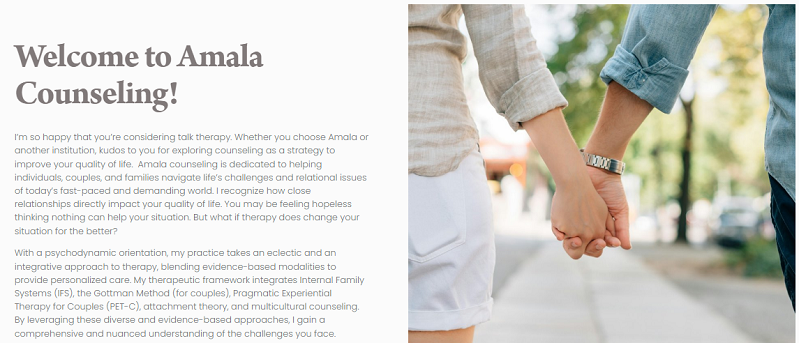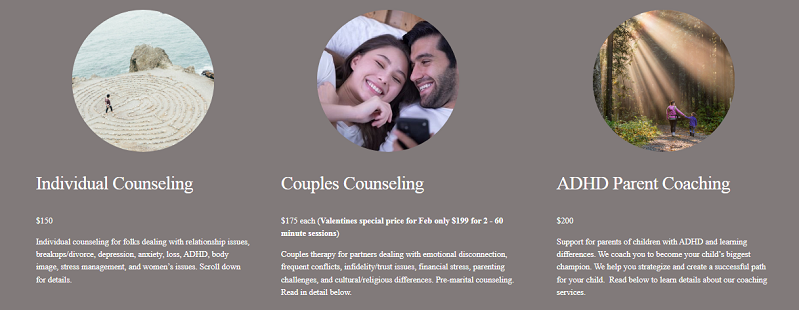Mental health challenges like anxiety and depression have become increasingly prevalent, yet recognizing them isn’t always straightforward. These conditions don’t always come with obvious warning signs; instead, they often manifest subtly, creeping into everyday life through changes in emotions, behavior, and physical well-being.
Early detection can be transformative, leading to the necessary support and recovery. This guide explores the key indicators of anxiety and depression, practical steps to take if you or someone you know is experiencing symptoms, and why Amala Counseling is your trusted mental health partner in Houston, TX.
Anxiety and Depression: More Than Just Feeling Stressed or Sad
Before diving into specific signs, it’s crucial to understand these conditions:
- Anxiety is more than just worrying about an upcoming event. It’s an overwhelming, persistent sense of dread that disrupts daily life. It can be linked to specific triggers or present as a constant, underlying unease.
- Depression is far more than a temporary low mood. It’s a deep, lingering state of hopelessness, emotional numbness, and loss of interest in things that once brought joy.
While these disorders are distinct, they often overlap. Recognizing their signs is the first step toward seeking help.
Subtle Yet Serious Signs of Anxiety
Uncontrollable Worry and Overthinking
- Persistent fear that something bad is about to happen.
- Inability to stop worrying about work, relationships, finances, or health.
- Constantly replaying past events or obsessing over future scenarios.
Physical Symptoms That Shouldn’t Be Ignored
- Rapid heartbeat, excessive sweating, or frequent shortness of breath.
- Persistent headaches, digestive problems, or unexplained muscle tension.
- Difficulty sleeping or waking up feeling exhausted despite a full night’s rest.
Behavioral Changes and Avoidance Patterns
- Avoiding social situations or activities that trigger anxiety.
- Seeking constant reassurance from loved ones or colleagues.
- Experiencing heightened irritability or restlessness without an apparent cause.
Recognizing the Signs of Depression
Emotional Disconnection and Lingering Sadness
- A persistent sense of emptiness, disconnection, or despair.
- Frequent tearfulness or an inability to feel joy in previously enjoyed activities.
- Deep feelings of guilt, shame, or worthlessness.
Unrelenting Fatigue and Loss of Motivation
- Constant exhaustion, even with adequate sleep.
- Struggling with daily responsibilities, from work to basic self-care.
- A loss of interest in hobbies, relationships, and social activities.
Disruptions in Sleep and Appetite
- Sleeping excessively or suffering from chronic insomnia.
- Unexplained weight gain or loss due to drastic appetite changes.
Social Withdrawal and Isolation
- Pulling away from friends, family, and social activities.
- Feeling like a burden to others or assuming no one cares.
- Decreased communication and responsiveness.
Dark Thoughts and Self-Destructive Behavior
- Expressing feelings of hopelessness or worthlessness.
- Talking about disappearing, escaping, or dying.
- Engaging in self-harm or other destructive behaviors.
If you or someone you know is experiencing suicidal thoughts, seek immediate help by calling 988 (Suicide & Crisis Lifeline) or reaching out to a mental health professional.
Steps to Take If You Notice These Signs
Recognize That Mental Health Matters
Acknowledging emotional distress is the first step. Mental health is just as important as physical health, and seeking support is a sign of strength, not weakness.
Talk to Someone You Trust
Opening up to a close friend, family member, or therapist can help ease the burden and provide clarity on the next steps.
Seek Professional Guidance
A certified mental health counselor can provide the necessary tools to navigate anxiety and depression effectively.
Prioritize Self-Care and Wellness
Incorporating daily habits like exercise, mindfulness, and structured routines can significantly contribute to emotional well-being.
Why You Should Trust a Certified Mental Health Counselor
When it comes to mental health, professional guidance is invaluable. Certified therapists provide:
- Expert Diagnosis and Treatment – They are trained to assess and treat a wide range of mental health disorders.
- Personalized Therapy Plans – Sessions are tailored to address your unique needs and challenges.
- A Safe and Non-Judgmental Space – A licensed professional offers a confidential and supportive environment.
- Evidence-Based Treatment Approaches – Techniques like Cognitive Behavioral Therapy (CBT) and Mindfulness-Based Stress Reduction (MBSR) ensure effective results.
Why Amala Counseling Is Your Trusted Partner in Houston
Finding the right therapist can make all the difference. Amala Counseling stands out because:
- Experienced and Compassionate Therapists – Our professionals specialize in anxiety, depression, trauma, and more, ensuring a customized treatment plan that works for you.
- Inclusive and Holistic Care – We acknowledge the impact of personal background and life experiences on mental health, offering an approach that respects each individual’s unique journey.
- Flexible Therapy Sessions – Whether in-person or virtual, we ensure therapy is accessible throughout Texas.
- Proven Treatment Methods – Our counseling strategies are rooted in scientifically backed techniques designed to promote long-term healing.
- A Safe and Supportive Environment – Healing happens at your pace, and we are committed to making every session a space of trust and progress.
Final Thoughts: Take the First Step Toward Healing
Recognizing the warning signs of anxiety and depression is crucial, but taking action is even more important. If you or a loved one is struggling, don’t wait—help is available.
Your well-being is worth the investment. Reach out to Amala Counseling today and schedule a consultation with a dedicated therapist who can guide you toward a healthier, more fulfilling life.



